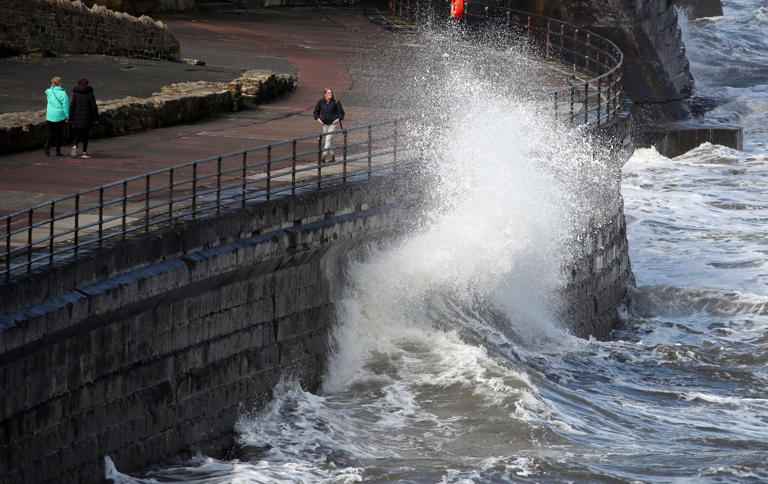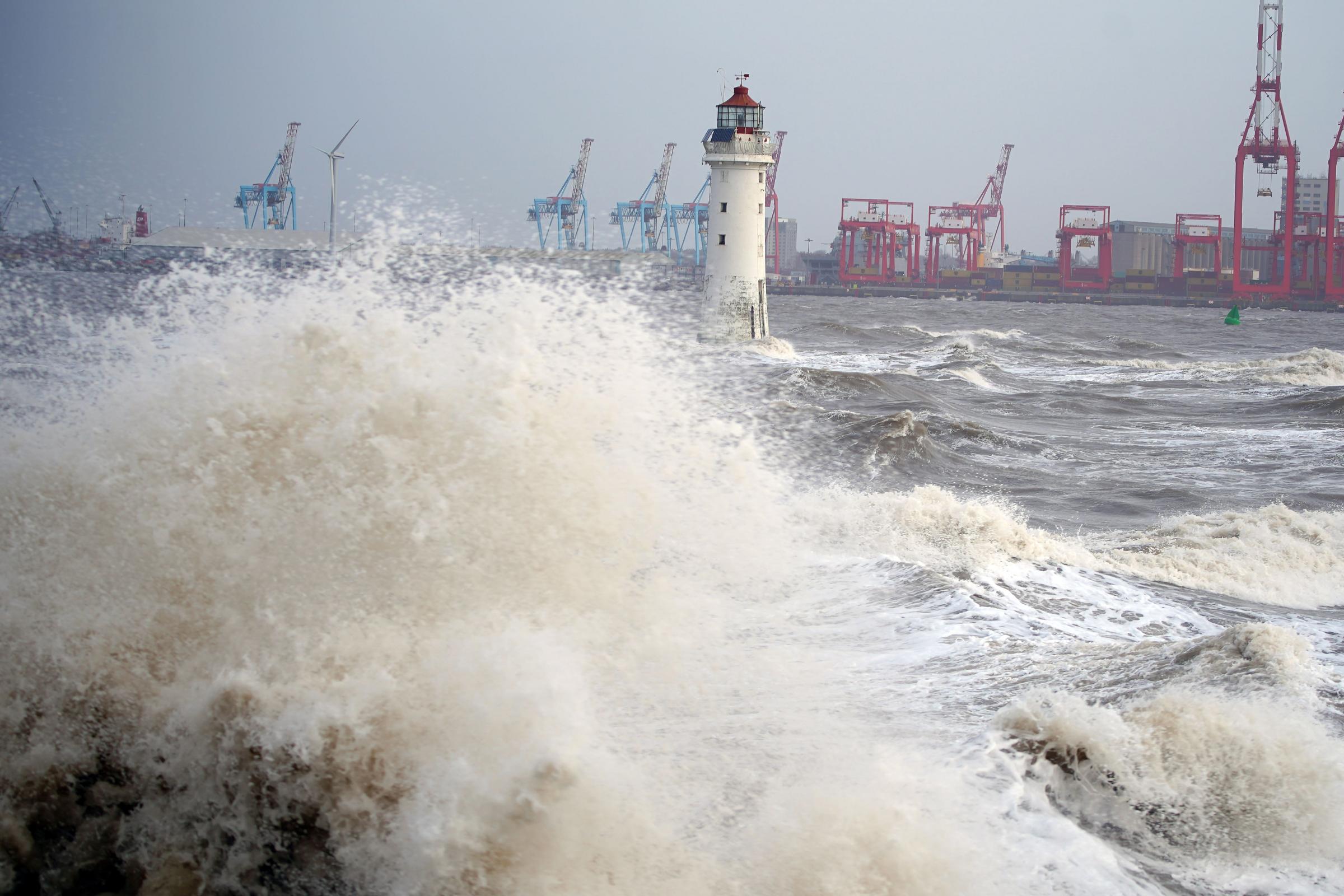The Met Office has issued a “danger to life” warning due to the anticipated high temperatures in the east and strong winds that are projected to affect western regions of the United Kingdom.
Storm Kathleen has caused the cancellation of dozens of flights due to its intense winds and precipitation.
Thus far, approximately seventy pre-midday departures and arrivals, including every Aer Lingus service at Belfast City Airport, have been canceled.
The storm, which is approaching from the Atlantic, is expected to bring 70 mph winds to Northern Ireland and the western portion of the United Kingdom. In the east, temperatures will reach 22 degrees Celsius (72 degrees Fahrenheit), the highest of the year thus far.
Given the torrential rainfall that fell overnight and into Saturday morning, a portion of the coastline is also likely to be struck by large waves.
A wind-related yellow weather warning is in effect until 10 p.m., encompassing Cornwall, a significant portion of Wales, portions of Lancashire and Cumbria, and central Scotland and Northern Ireland.
As of Friday evening, the Environment Agency had issued 15 flood warnings (indicating areas where flooding is “expected”) and 124 flood alerts in England.
Additionally, 43 red cautions are in place for the River Thames due to its turbulent currents, which advise boat users against navigating this waterway in London.
National Resources Wales issued four flood notices in areas north and west of Bannau Brycheiniog National Park.
According to the Met Office’s marine forecast, twenty gale warnings are in effect for the following sea regions: Viking, Plymouth, Biscay, Sole, and Lundy.
The Met Office predicted in its weather alert that Storm Kathleen would bring widespread winds between 50 and 60 mph, with some coastal regions along the Irish Sea experiencing gusts of up to 70 mph.
Life-threatening injuries and property damage were warned as a result of beach debris and large surges hurling onto coastal roads and properties.
Road, rail, and ferry services may also be impacted, potentially resulting in extended travel durations and cancellations.
Potential consequences include power outages and disruptions to mobile phone coverage.
The warmest day throughout the year
According to Met Office meteorologist Ellie Glaisyer, Saturday will be the warmest day of the year thus far despite the high winds blowing throughout the United Kingdom. East Anglia is expected to experience temperatures as high as 22 degrees Celsius (72 degrees Fahrenheit).
She explained that the higher temperatures are caused by Storm Kathleen, which is positioned to the west of the United Kingdom and blowing a southerly wind through the country.
While the temperatures may be above average, Ms. Glaisyer noted that the air will feel slightly colder as one moves further west into the amber warning area, where the strongest winds are present.
At Achfary in northwest Scotland, the most significant temperature of the year to date was 19.9 degrees Celsius (68 degrees Fahrenheit) at the end of January.
At midday, London is expected to reach 20 degrees Celsius (68 degrees Fahrenheit), warmer than Nice, France, and Lisbon, the capital of Portugal, which the Met Office predicts will reach 18 degrees and 17 degrees, respectively.
Met Eireann, the national meteorological service of Ireland, has designated Storm Kathleen and issued warnings and a “vigilant” appeal to the public encompassing the entire nation.
An amber alert has been issued for Cork, Kerry, Galway, and Mayo, indicating “extremely hazardous travel conditions,” including the possibility of downed trees, power disruptions, and coastal flooding.





